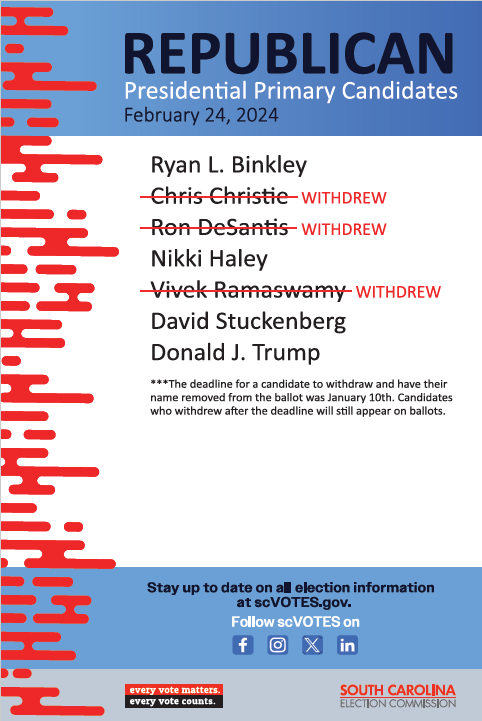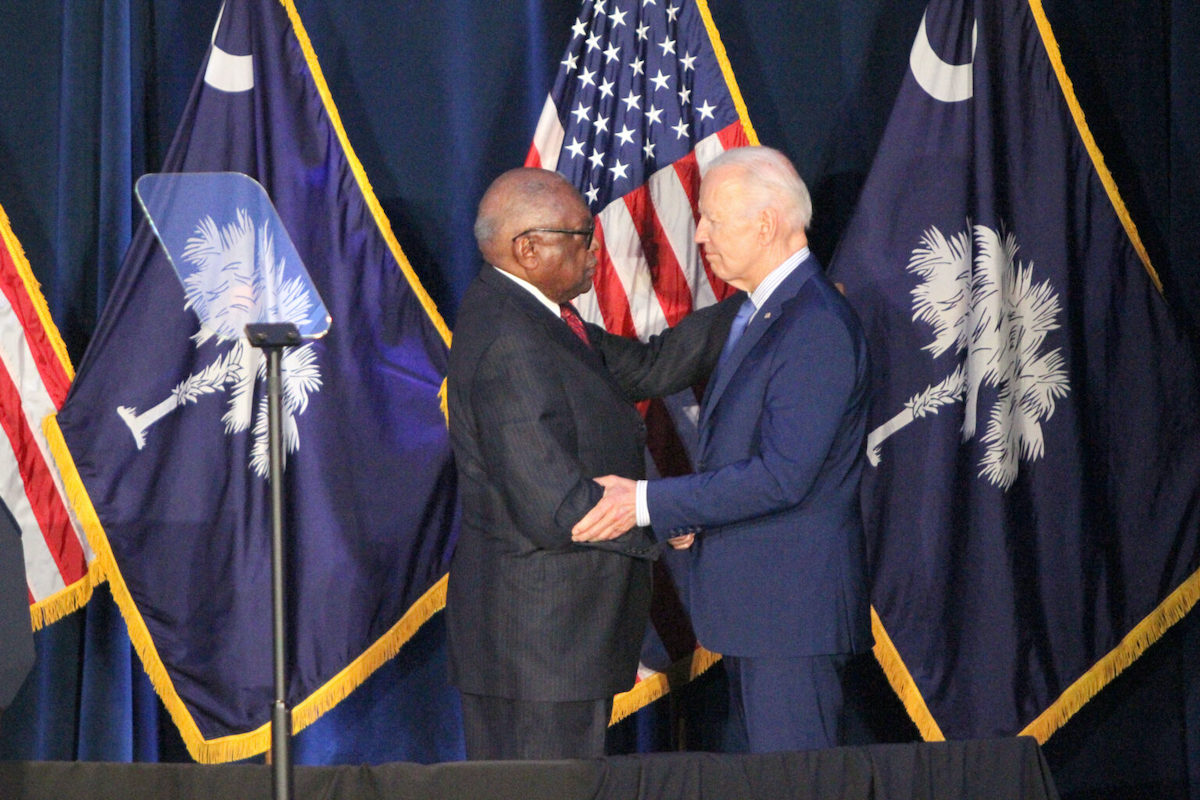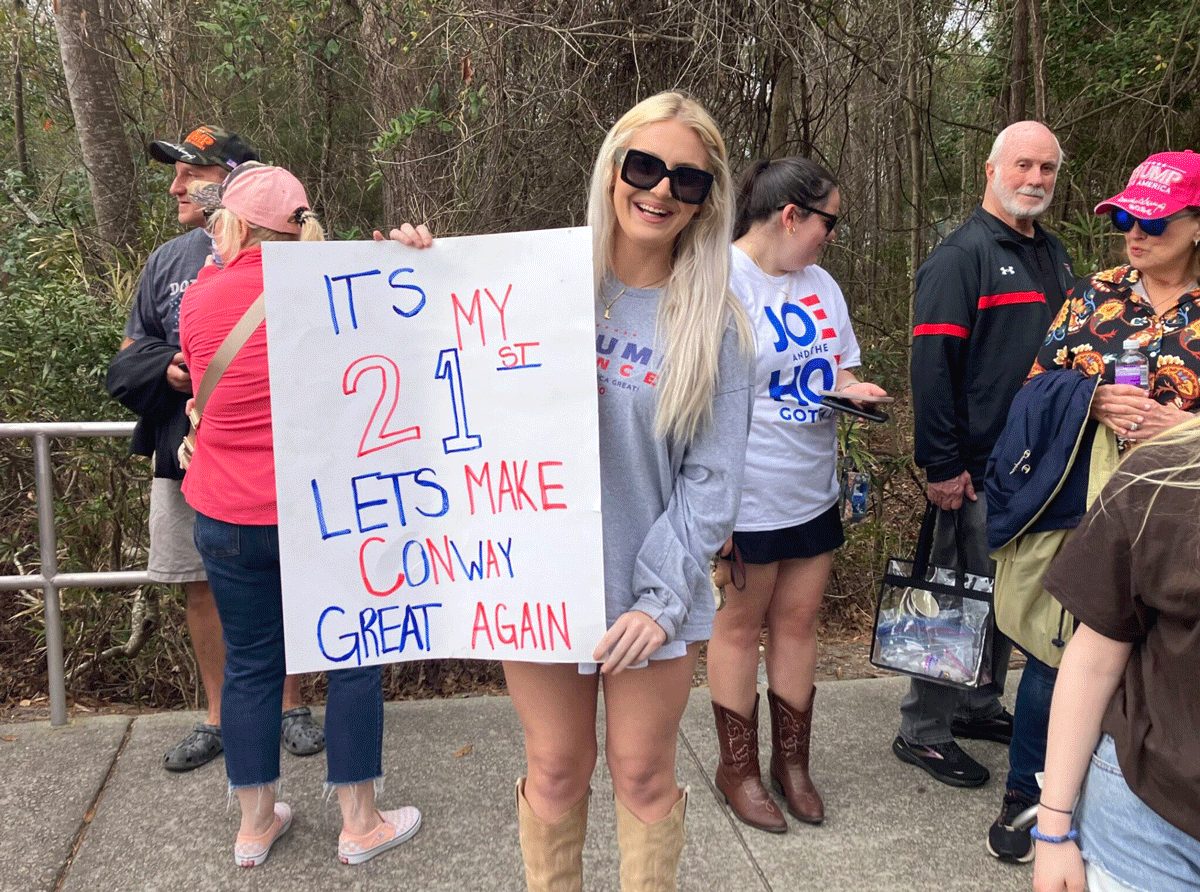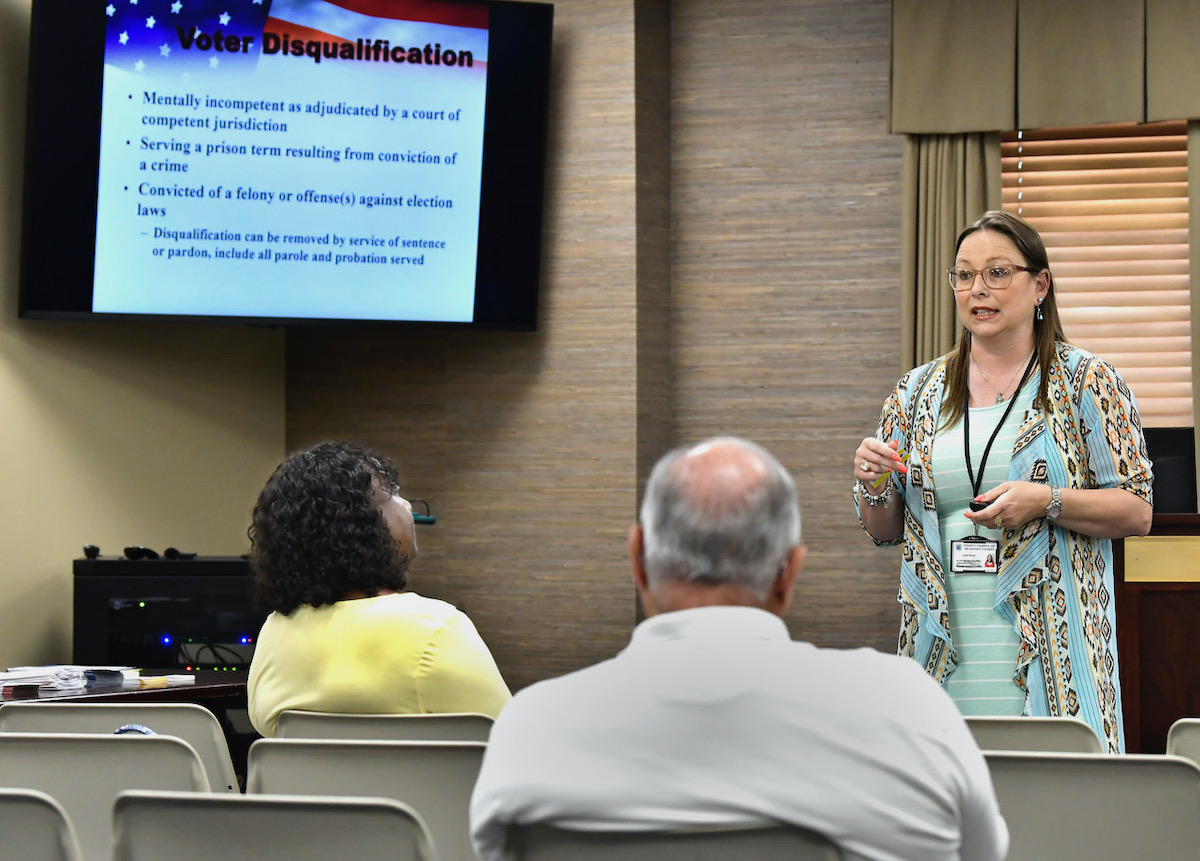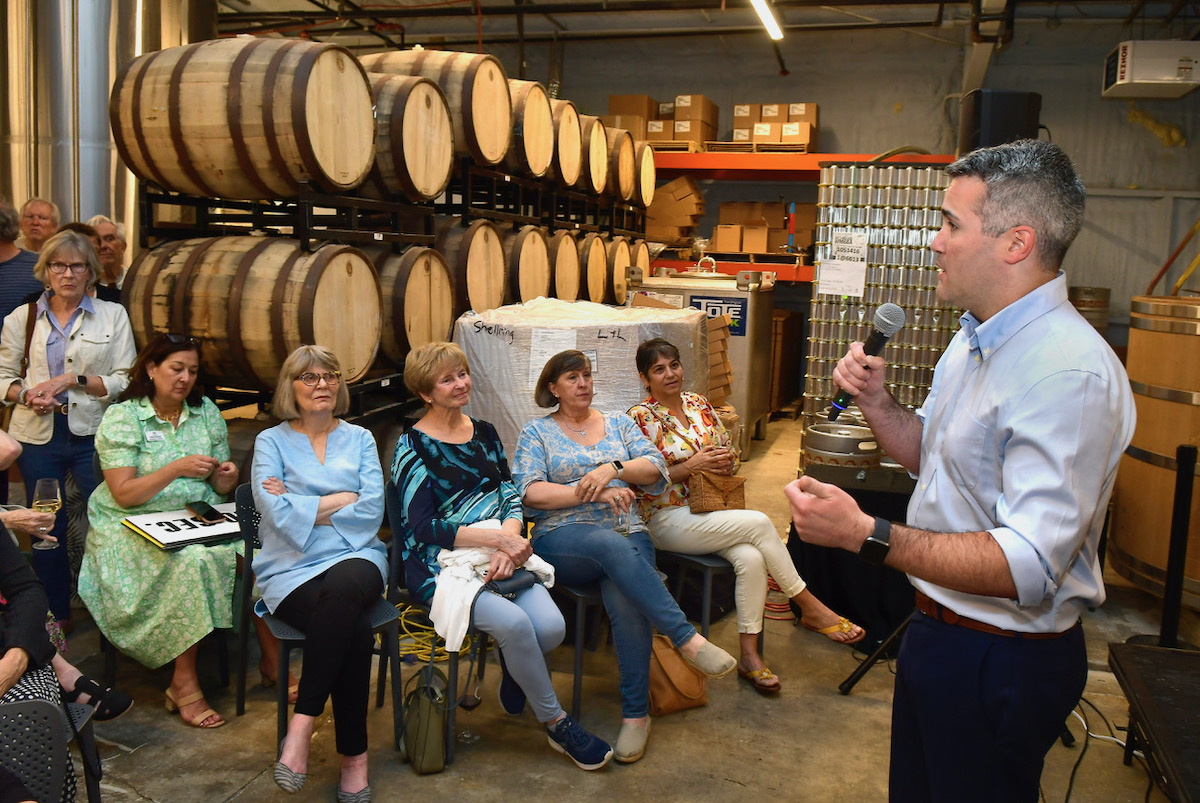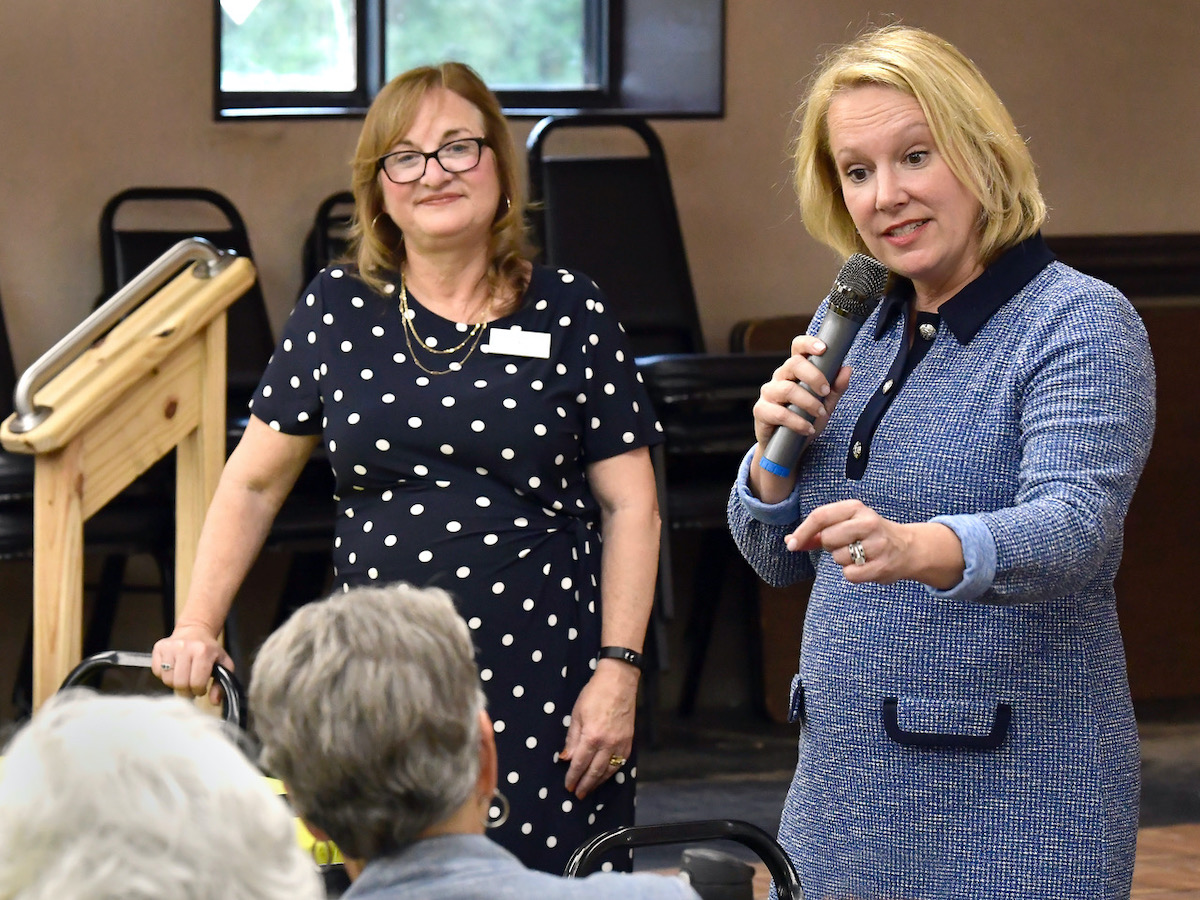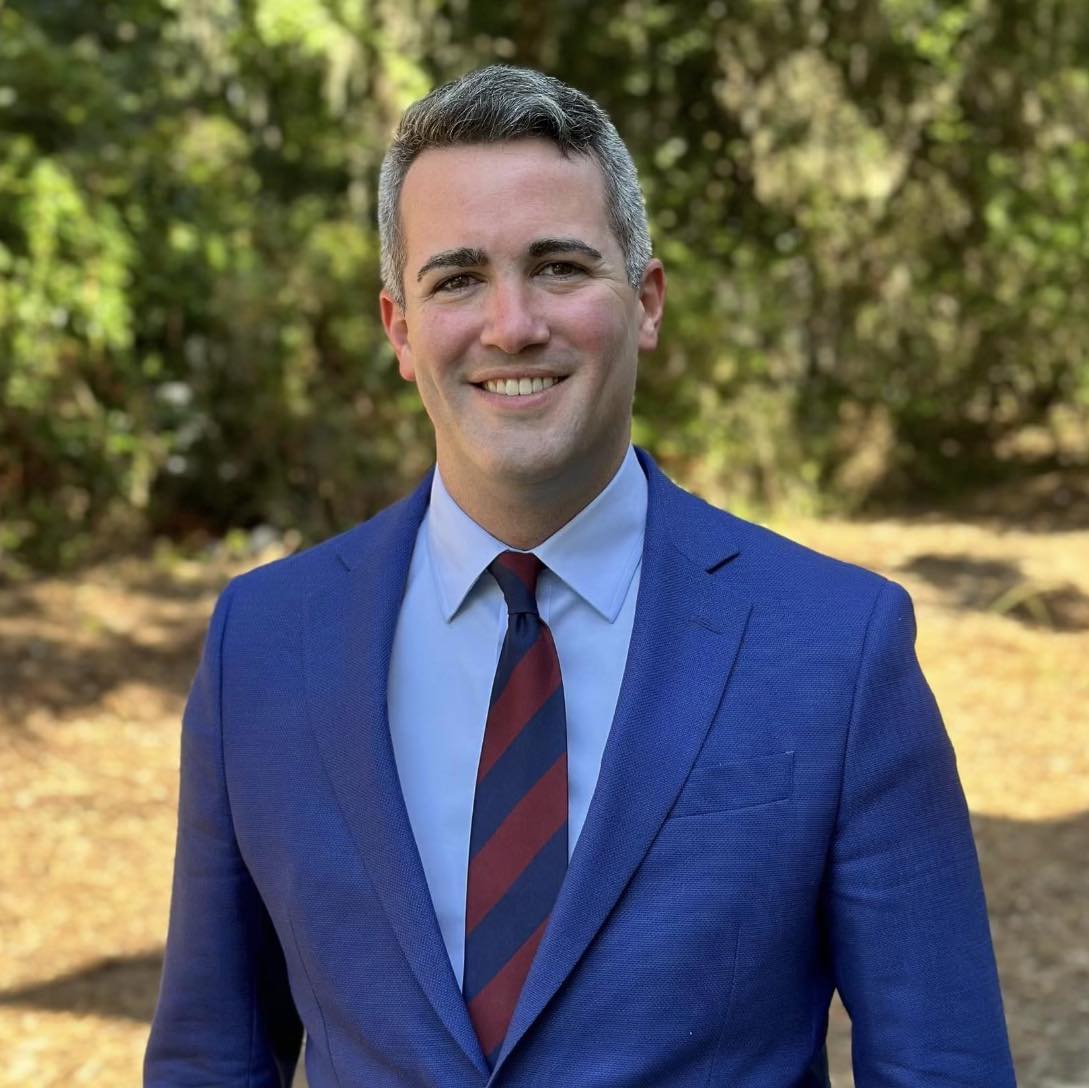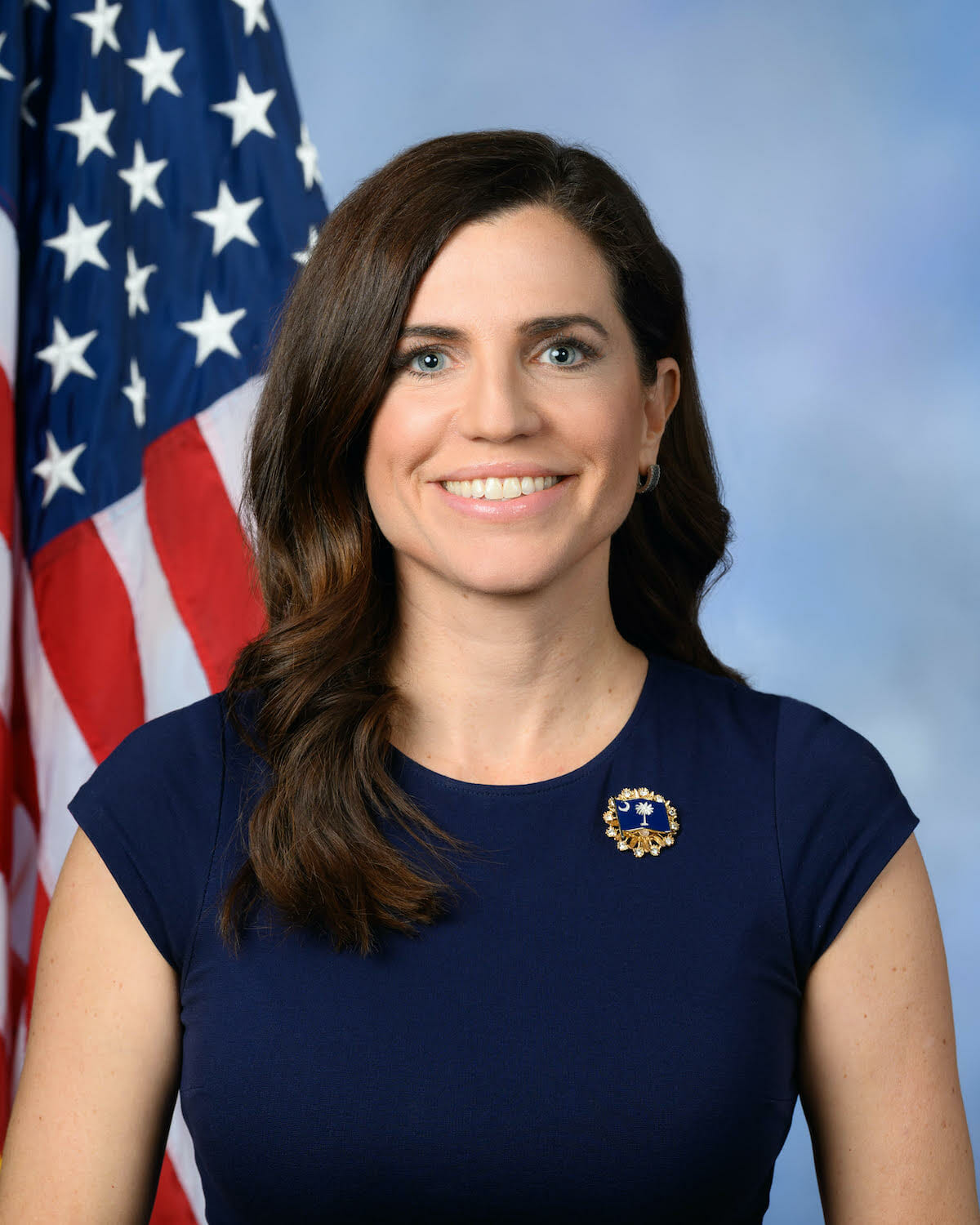By Abraham Kenmore
COLUMBIA — Early voting starts Monday for South Carolina’s GOP contest that pits former Gov. Nikki Haley against former President Donald Trump.
Seven candidates are actually listed on the GOP ballot, but three of them are no longer in the race. Florida Gov. Ron DeSantis, biotech entrepreneur Vivek Ramaswamy, and former New Jersey Gov. Chris Christie all withdrew after the state Election Commission’s deadline for finalizing the ballot.
Posters at every polling location — for early voting and on primary day — will provide an easy guide for who’s dropped out. The posters show a red line struck through their names with “WITHDREW” written beside them in capital letters. People can still vote for them. But their tallies won’t matter.
Two extreme long-shots on the ballot are still running: Pastor Ryan Binkley of Texas and veteran Air Force combat pilot David Stuckenberg of Florida.
Where and when
Voters have nine days to cast a ballot in person before precincts open Feb. 24.
Hours are 8:30 a.m. to 6 p.m. at each location. State law allows each county to open up to seven early voting locations. But for this contest, most counties are opening just one, though some are offering up to four options.
Check the state Election Commission’s website for a listing of all possibilities by county. Early voters can go to whatever location is most convenient within their county.
There are three days excluded from the early-voting window: Sunday, Feb. 18; Monday, Feb. 19 (Presidents’ Day), and Feb. 23. By law, Sundays and holidays must be excluded. The state Election Commission additionally requested Feb. 23 as a one-day breather to prepare, and the state GOP agreed.
The same photo identification requirement for Election Day applies to early voters.
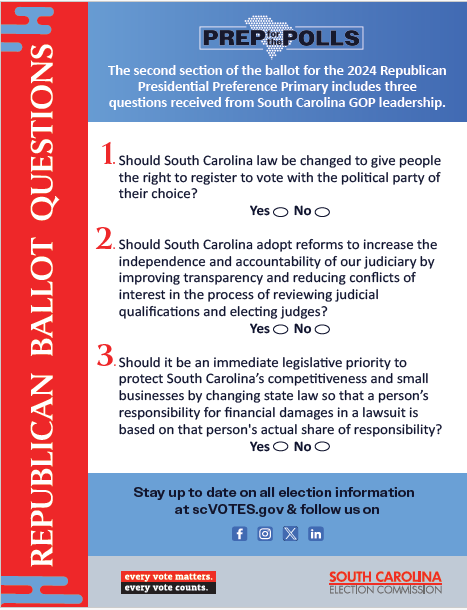
A poster showing the three questions that the Republican party included on its presidential primary ballot. Graphic courtesy of the South Carolina Election Commission
What’s up with the questions?
The Republican ballot includes three questions voters can answer. The results carry no legal weight. Both parties often include questions on primary ballots as a way to get voters to the polls and to help them lobby legislators on proposals.
State Election Commission posters will also provide the wording of the questions, in case voters want to study them before casting a ballot. The wording is supplied by the state Republican Party, and it can be misleading.
For example, the first one asks if the Legislature should change state law to “give people the right to register to vote with the political party of their choice.”
What it’s asking is whether state law should require people to register as either a Democrat or a Republican, then limit primaries to only voters registered by that party. That would leave independent-minded voters unable to vote at all in South Carolina primaries, which is usually where a race is won in this state.
GOP officials have long complained about the potential of Democrats crossing over to influence who becomes the Republican nominee. But bills to force South Carolina voters to register by party have repeatedly failed.
Who can vote?
State law allows any of South Carolina’s 3 million registered voters who did not vote in the Feb. 3 Democratic presidential primary to vote in the GOP contest. Voters can choose to vote in either. They just can’t vote in both.
South Carolina has 3.2 million registered voters. Just under 131,500 of them have already voted for a presidential nominee, representing just 4%.
People wanting to vote absentee by mail must apply for an absentee ballot by 5 p.m. Tuesday, Feb. 13.
To request an absentee ballot, voters must give a reason why they can’t vote in person. Allowed reasons include being out of town, serving in the military, being 65 or older or having a physical disability. Ballots can be returned by mail or in person, if returned in person voters need to show a photo ID.
South Carolina law had long allowed de facto early voting, both in person and by mail. But this is the first year that a presidential primary has had true early voting.
Ahead of the Democratic primary on Feb. 3, more than 48,000 people voted early, representing about 40% of all votes cast.
President Joe Biden won easily with 96% of the vote over two longshot candidates, author Marianne Williamson and U.S. Rep. Dean Phillips of Minnesota. Williamson, who received 2% of the vote in South Carolina, has since dropped out of the race.
Abraham Kenmore is a reporter covering elections, health care and more. He joins the S.C. Daily Gazette from The Augusta Chronicle, where he reported on Georgia legislators, military and housing issues.


